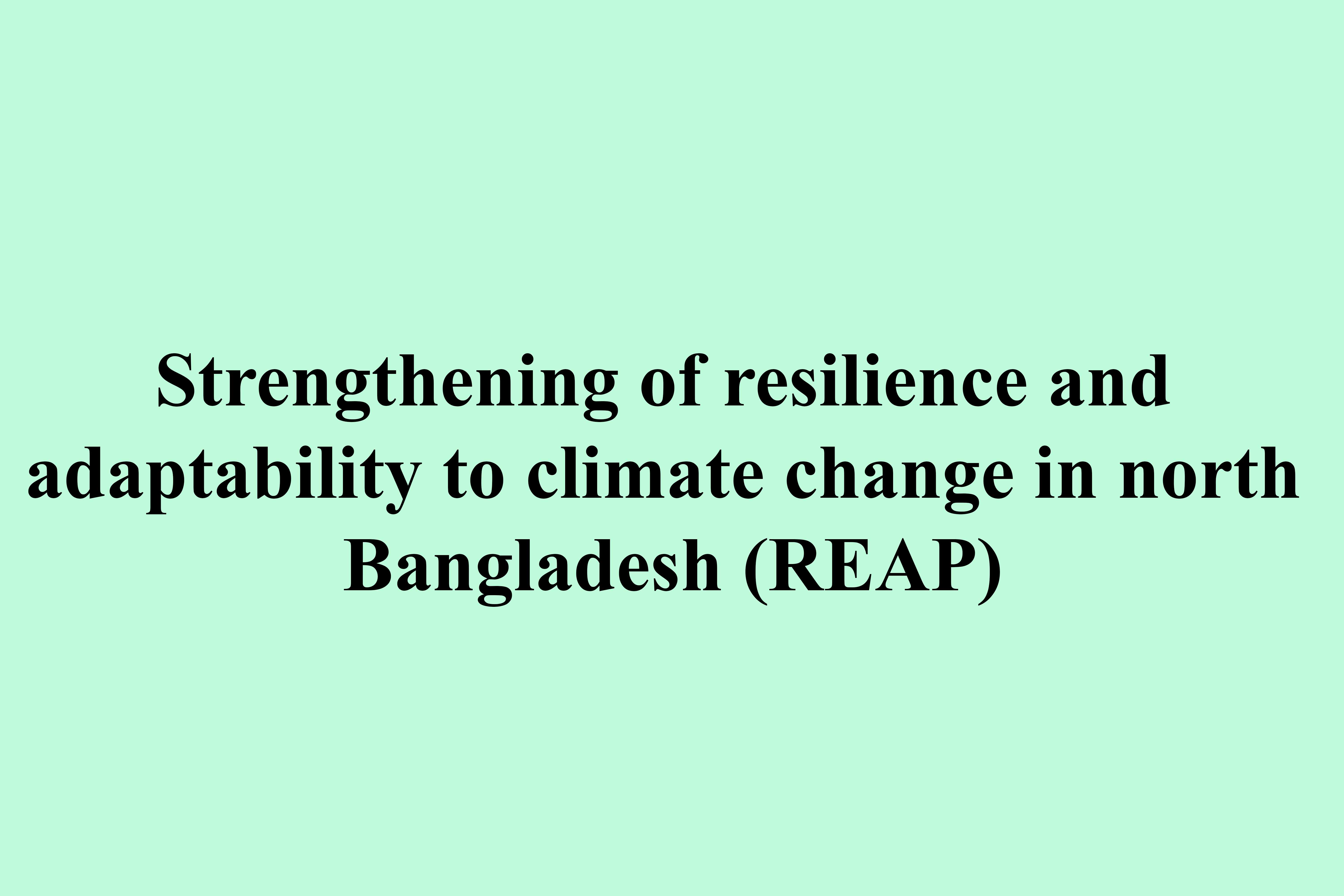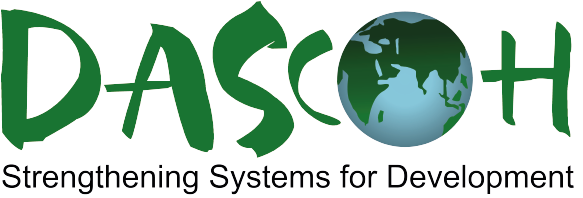
Project Name: Strengthening of resilience and adaptability to climate change in north Bangladesh (REAP)
Project Implementation Period: 01 January 2019 to 31 December 2021
Funding Agencies: German Federal Ministry of for Economic Cooperation and Development-BMZ and NETZ
Project Areas: 8 Unions in Atrai (Bisha, Sahagola, Kalikapur & Hatkalupara Union) and Raninagar ( Kasimpur, Mirat, Gona & Borogacha Union) Upazia of Naogaon district.
Total Project budget: 35,667,804
Beneficiary: 1600 BHHs (Atrai-800, Raninagar-800)
Project goal/objective: In the districts Naogaon, the project contributes to overcome extreme poverty (SDG 1) and to reduce the vulnerability to the adverse consequences of climate change (SDG 13).
Major interventions:
The project focused on enhancing the resilience of rural communities through several interconnected initiatives. Key components included providing productive assets and risk mitigation funds to safeguard against asset loss. The selection of beneficiaries was conducted using Participatory Rural Appraisal (PRA) tools, and ongoing monitoring was ensured through regular and Climate Vulnerability & Capacity Analysis (CVCA) assessments, along with baseline and endline surveys. Target families received training in climate-smart agriculture and vocational skills, equipping them with sustainable livelihood options. Health support and awareness campaigns were implemented to address extreme health shocks. Market orientation sessions helped the community understand and establish market linkages. Training on advocacy, leadership, and economic rights empowered the project advisory boards and community members.
Disaster management training prepared the community for climate risks, with disaster volunteers ready to provide emergency support. The project also integrated disaster management efforts with local and national networks, promoting safe dwellings. Awareness campaigns on climate change adaptation were conducted in local educational institutions, engaging youth in raising awareness about natural calamities. Democratic dialogues with local political bodies, journalists, and teachers fostered community advocacy for environmentally friendly development. Meetings with service providers and decision makers in Dhaka aimed to improve access to essential services and promote climate change adaptation policies.
Achievement of REAP Project
Preparation of Family Development Plans (FDPs) and Business Development Plans (BDPs): With the help of the project staff, each family creates its own family development plan in a participatory process. Based on the analysis of their strengths, challenges, potentials and needs, the families define their individual development goals. The family development plans also contain simple business development plans in which the families choose their specific income generation activities and define risk factors and corresponding mitigation strategies.
Trainings on Climate-Smart Agriculture for the implementation of climate resilient income generation activities (IGAs): The women of the selected target group households are organised in village groups. Each member of the village groups takes part in a two-day training on Climate-Smart Agriculture.
Transfer of productive assets to the Selected Project Beneficiaries: Based on their individual family development plans, each project participant receives productive assets worth 9,000 BDT costs for 1,600 families: such as livestock, seeds or leased land, Poultry birds, small business, Tailoring, Transport base business as per need by the BHHs.
Per capita income have increased from 28 to 65 BDT (Approximate). The per capita income of the BHH increased from 28 to through different income generating activities
Establish a savings programme at group level and foster solidarity: The women are encouraged to save money, so that they are not forced to sell their productive assets in times of distress, such as natural disasters or in the event of illness.
Setting up self-help groups at village level and Project Advisory Boards at union level: The women of the selected target group families organise themselves in village groups. The Field Facilitators under the supervision of the Unit Coordinators facilitate the formation of groups of the 1,600 women of the target group families.
Trainings on Leadership and Organizational Management: In order to strengthen the organisational competencies and the assertiveness of the target group, 240 members of the target group, three per village group, participate in a two-day leadership training course.
Meetings with local authorities and public service providers
In the first year of the project, the project staff increasingly exchanges information with the UP Chairmen and UP members in order to analyse the existing allocation practices in regard to safety net measures (such as widow's allowance, old-age pension or food cards for extremely poor families) in the respective unions.
Analysis and capacity building within the Disaster Management Committees: The Disaster Management Committees are government-run institutions at community and upazila level consisting of members of the respective local administrative units (union parishad members, members of the upazila administration, government officials, etc.), of members of the civil society and other representatives of the population who are expected to assume certain tasks in risk reduction and in the implementation of emergency relief measures with regard to climate-related hazards and natural disasters (such as floods, cyclones, droughts or cold waves, etc.).
Exchange between self-help organisations of the target group and Disaster Management Committees: In organised meetings, the village groups exchange views with the respective Disaster Management Committees at community level.
Raising awareness in local educational institutions: In the first year of the project, project staff increasingly collaborates with local secondary schools (classes 6 to 12 with students aged 11 to 17) in the project communities. Three secondary schools are selected per community, 24 in total. Three teachers per school receive trainings on the impact of climate change, the causes of vulnerability to climate change and appropriate long-term adaptation strategies.
Lesson Learnt:
· Due to pandemic situation COVID-19, field visited by alternative way and our program participants have not feeling that’s they are alone for providing sufficient support to our beneficiary from DASCOH.
· Community people day by day increasing theirs capacities on adaptation, anticipation and absorbed for climate context.
Challenges:
· Sometimes income reduced of beneficiaries’ households.
· Missing of project supported assets.
· Beneficiary will down the poverty to extreme poverty line.
· Project activities as well as project objective will not achieve due to staff dropout and insufficient fund.




